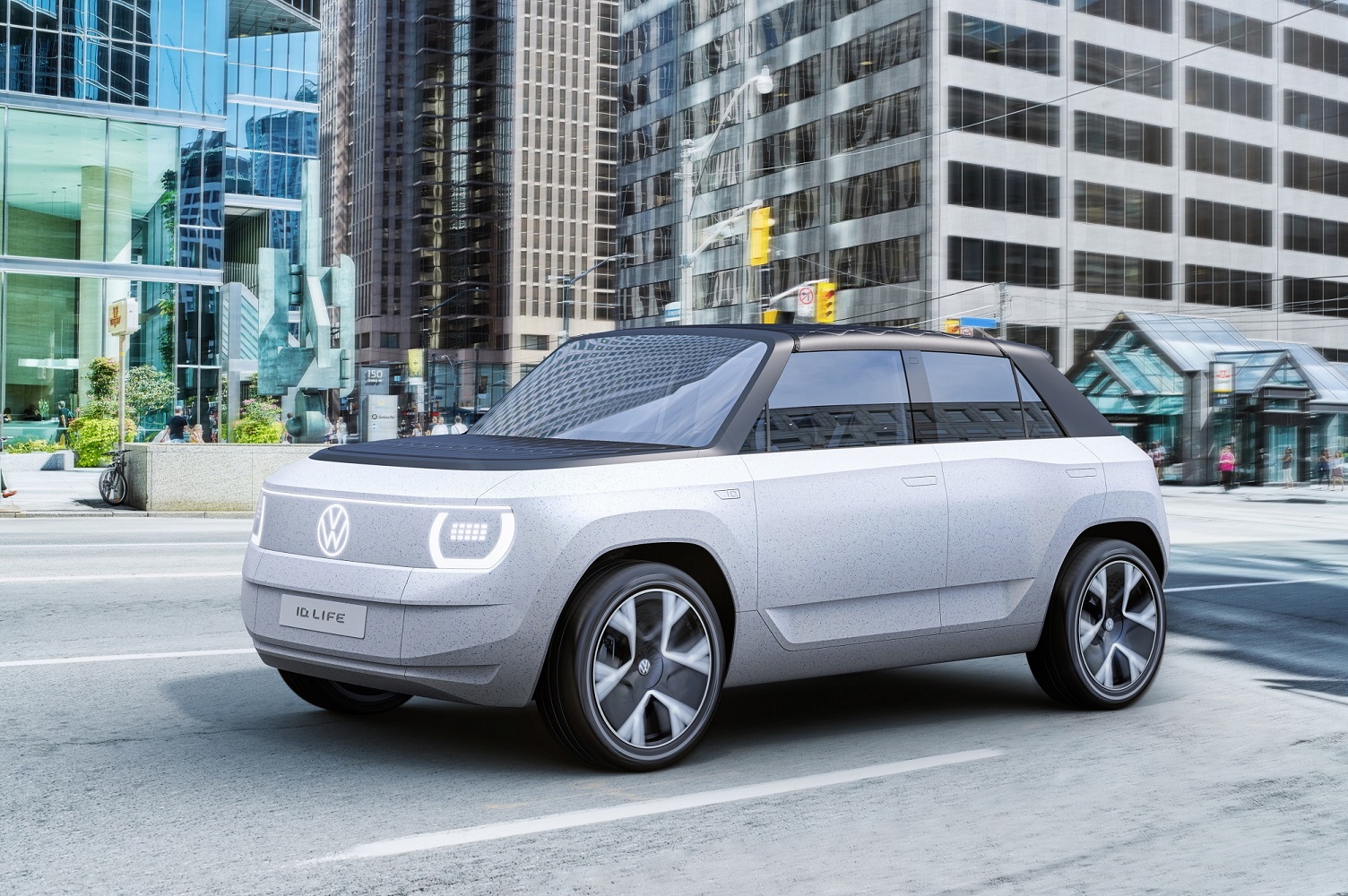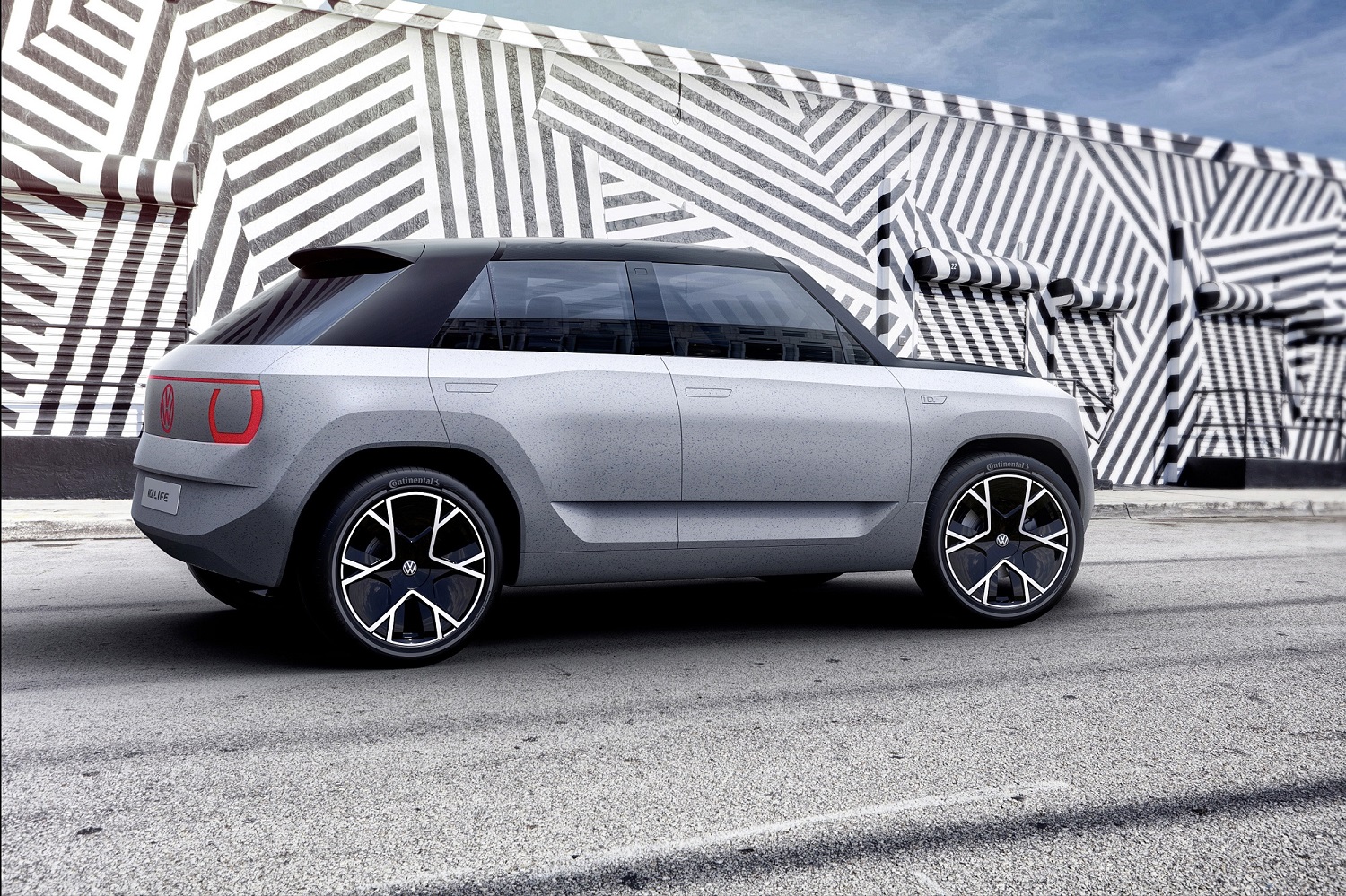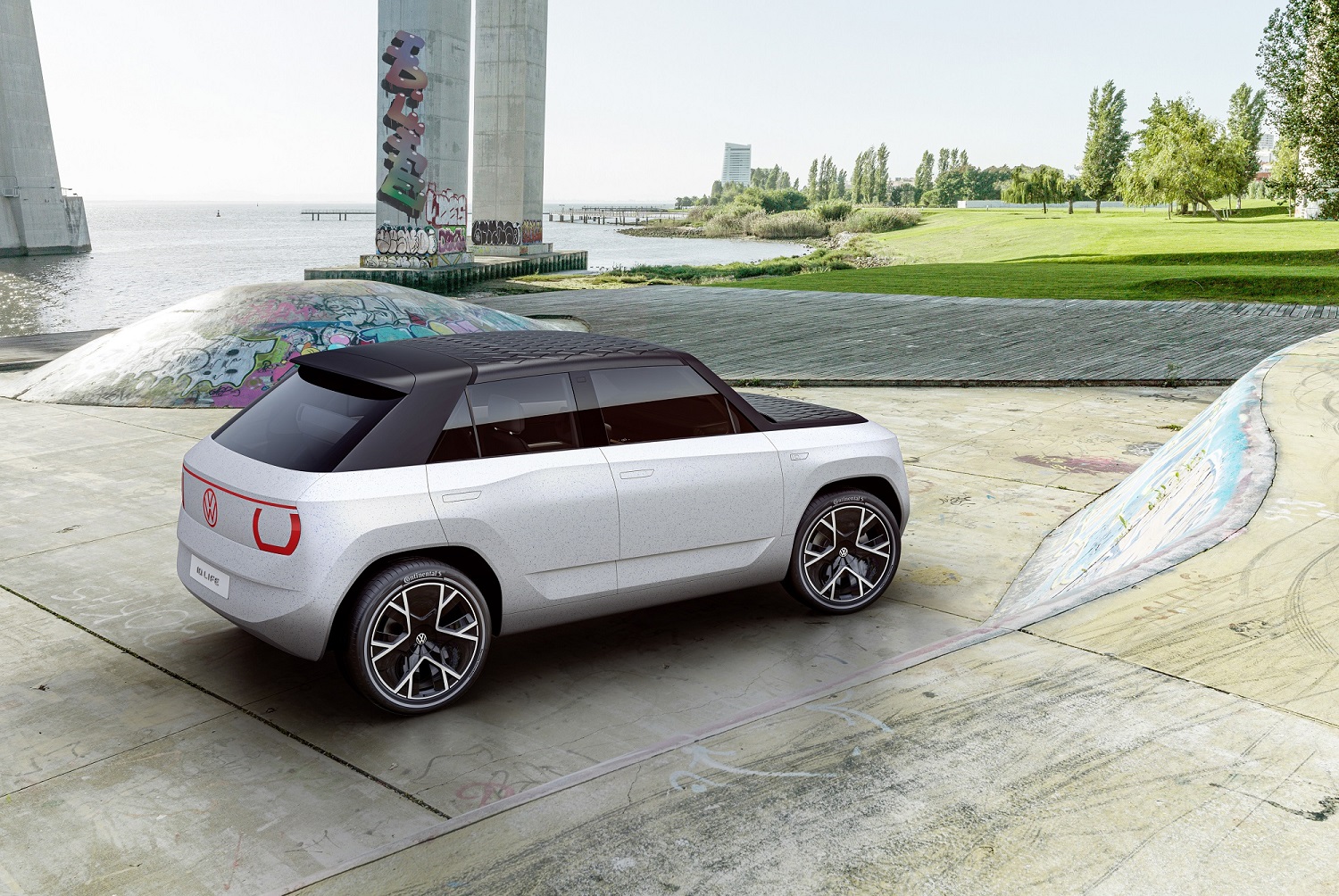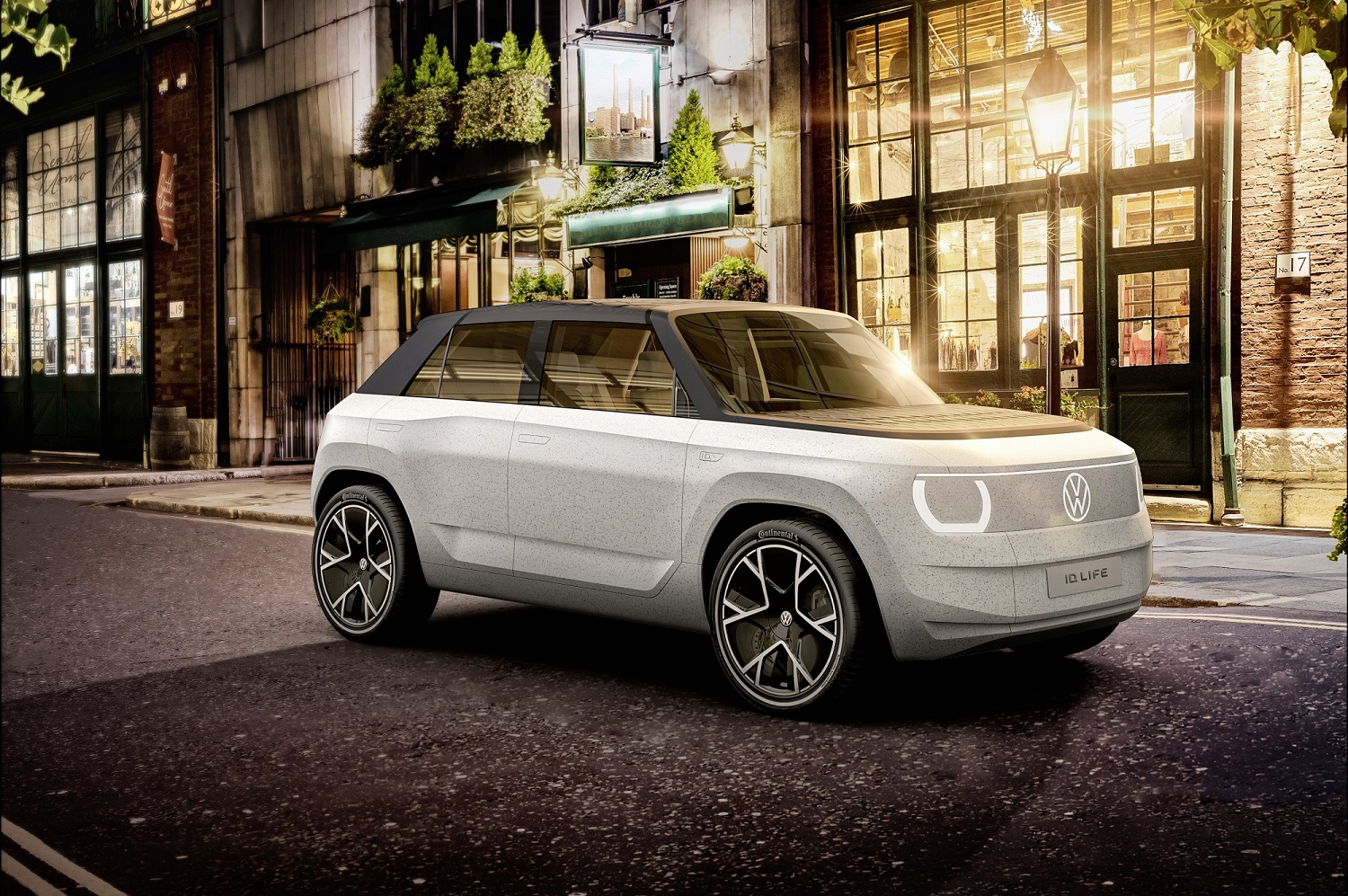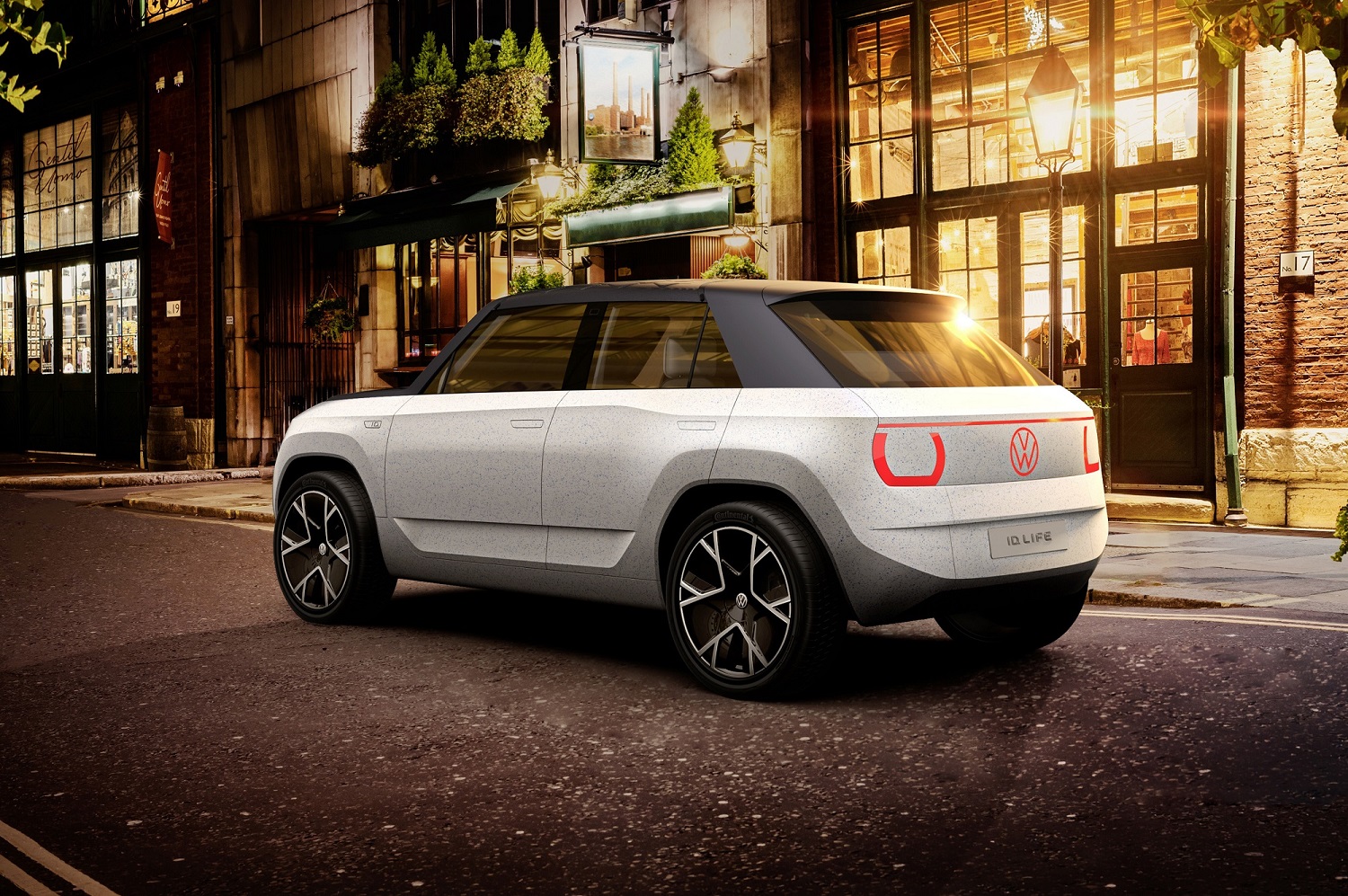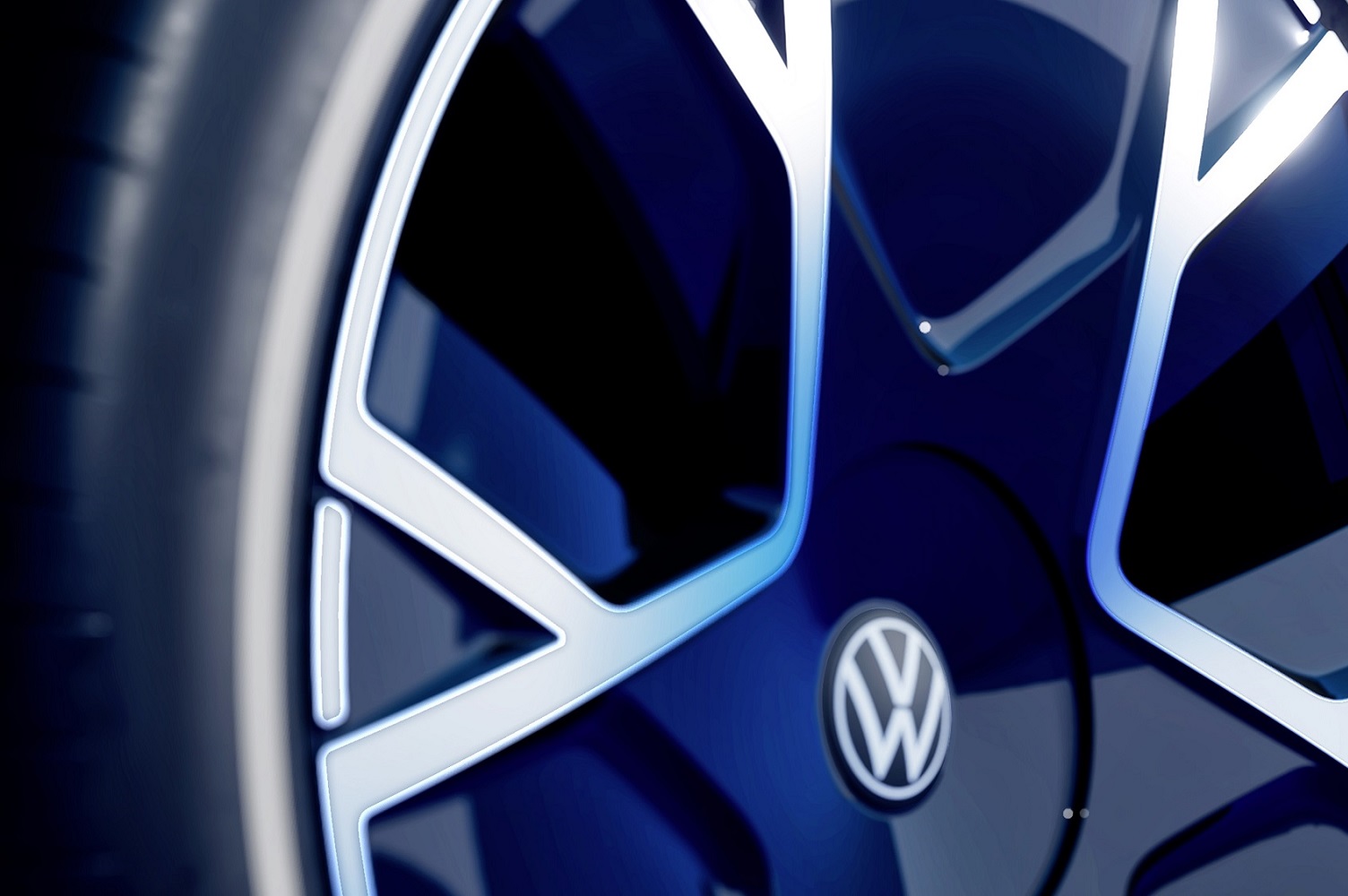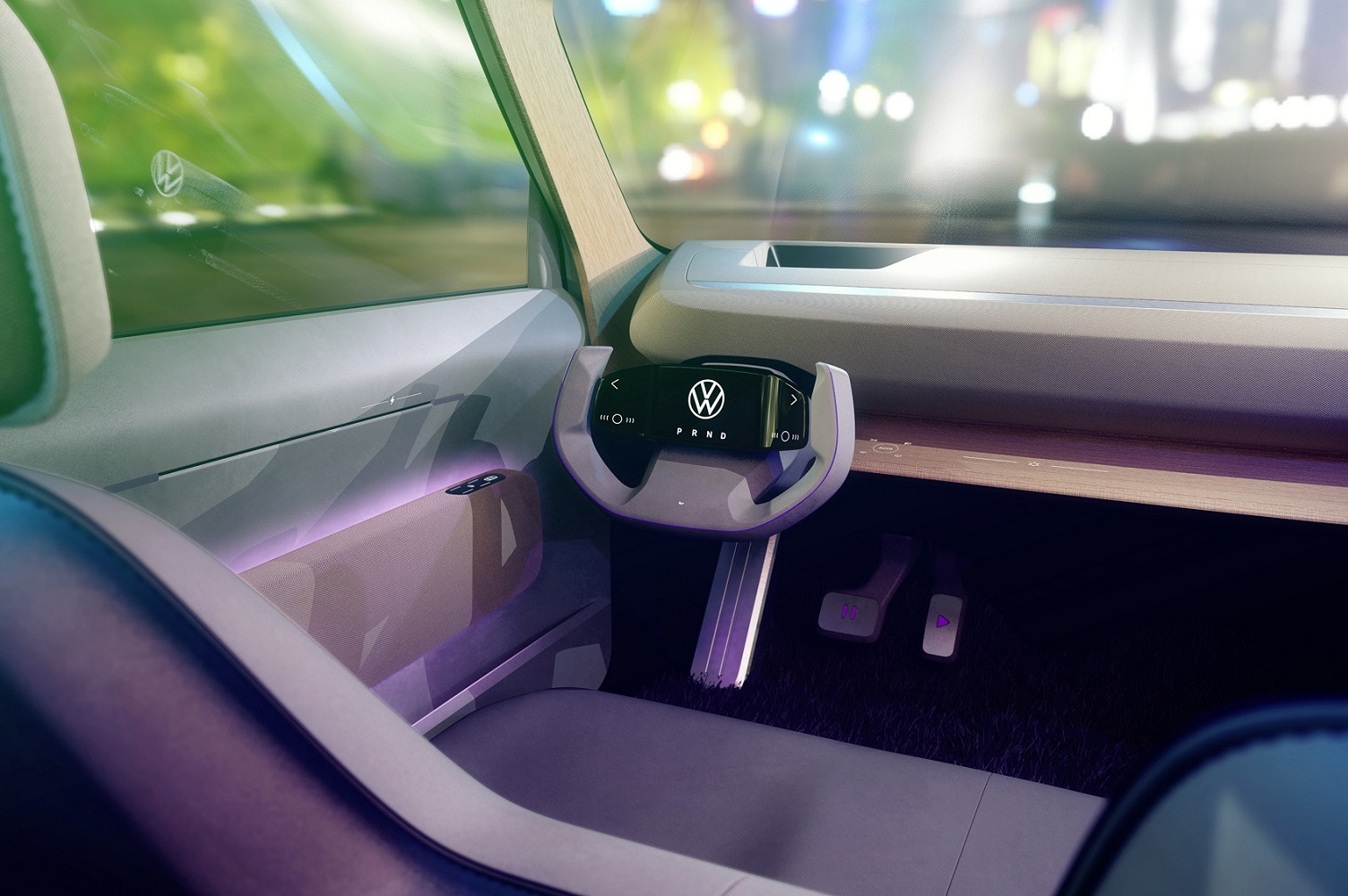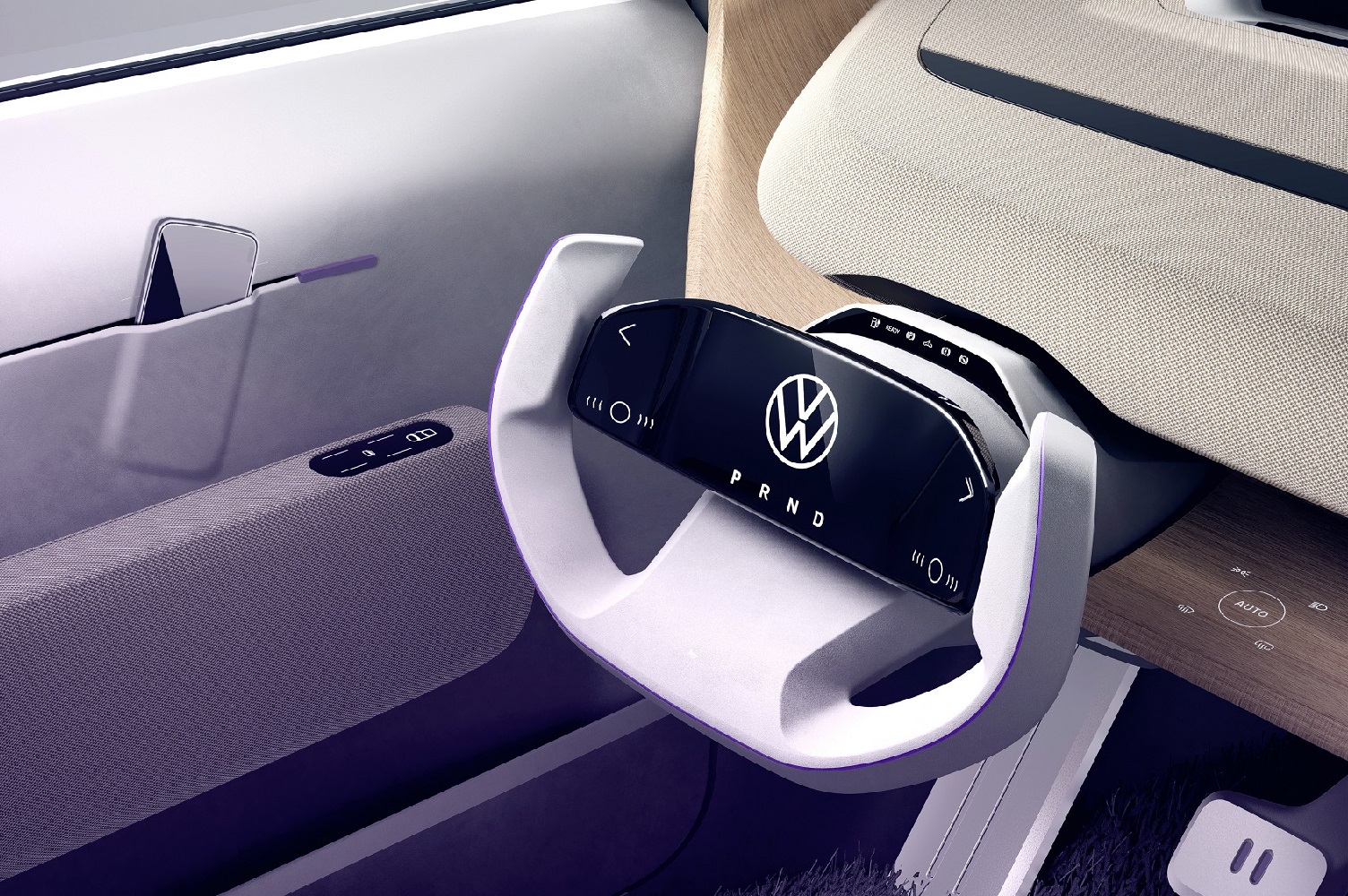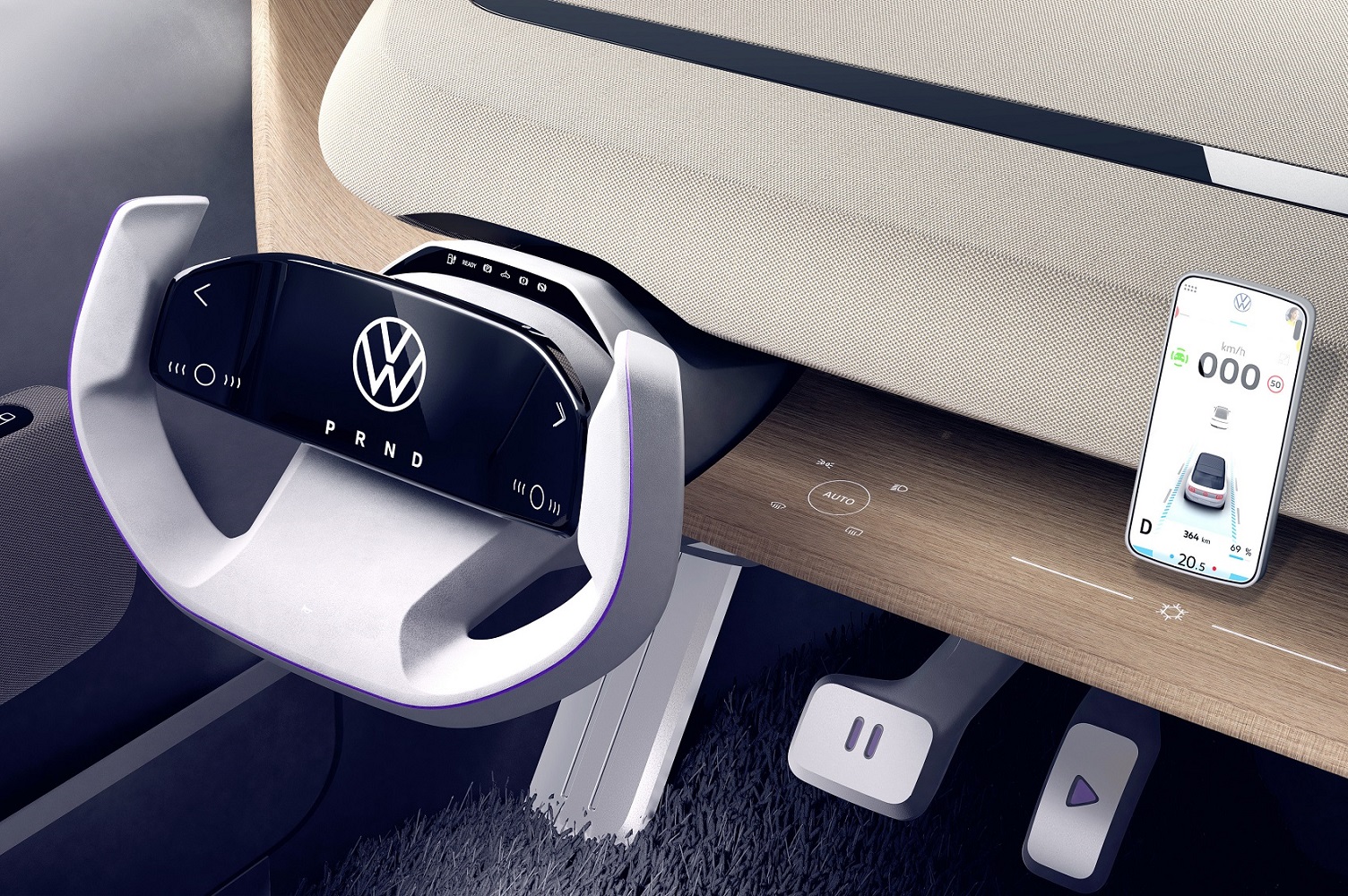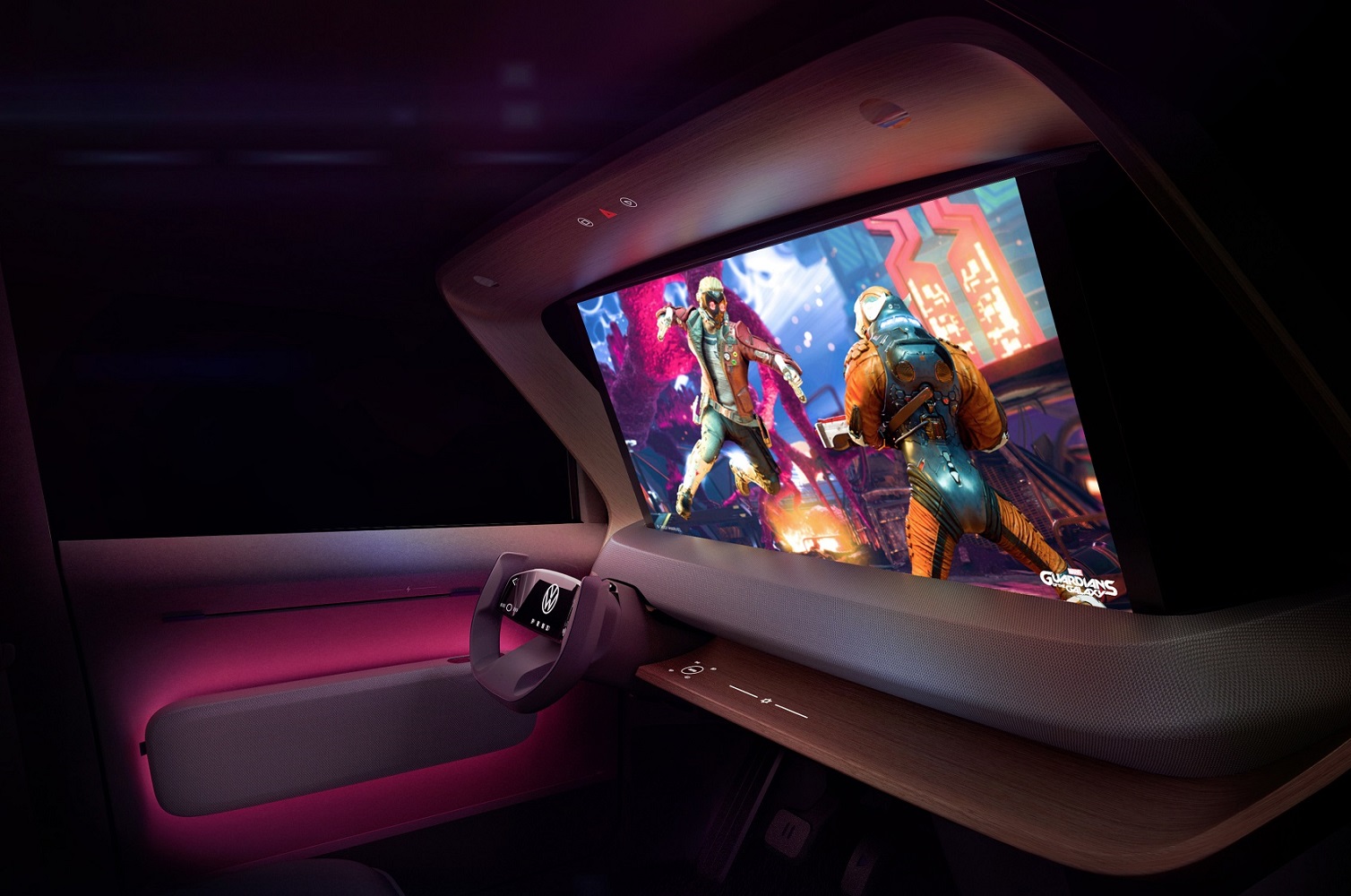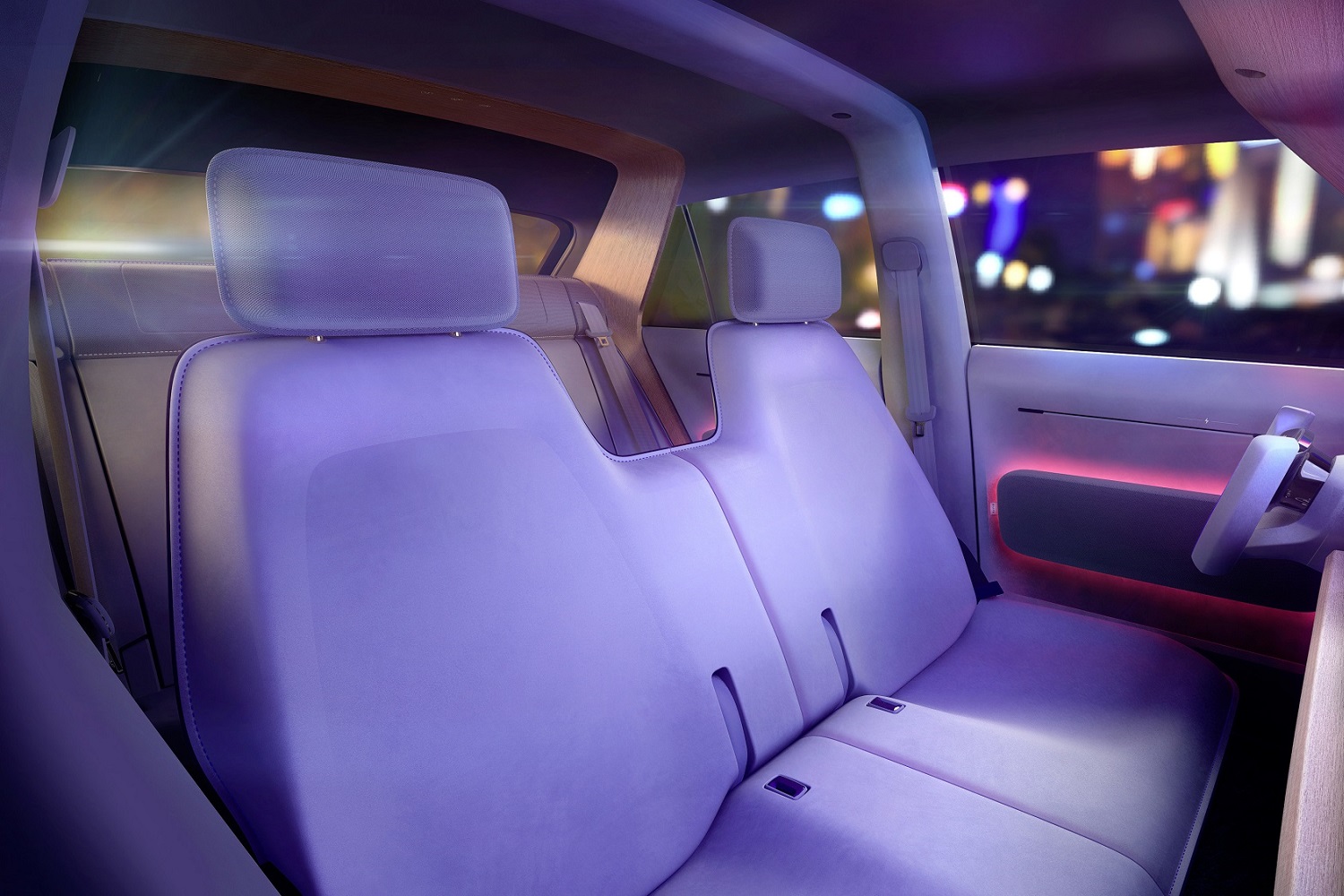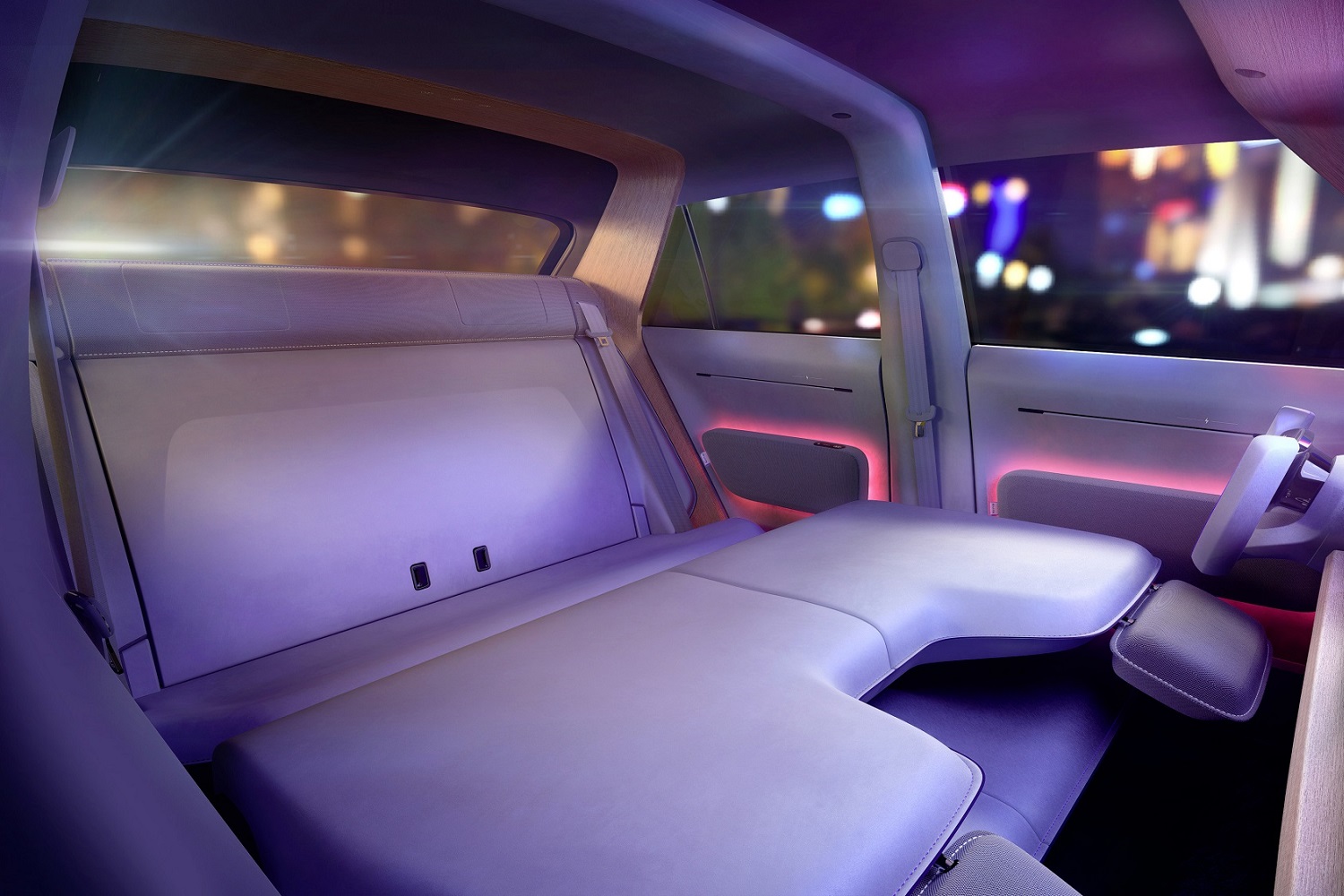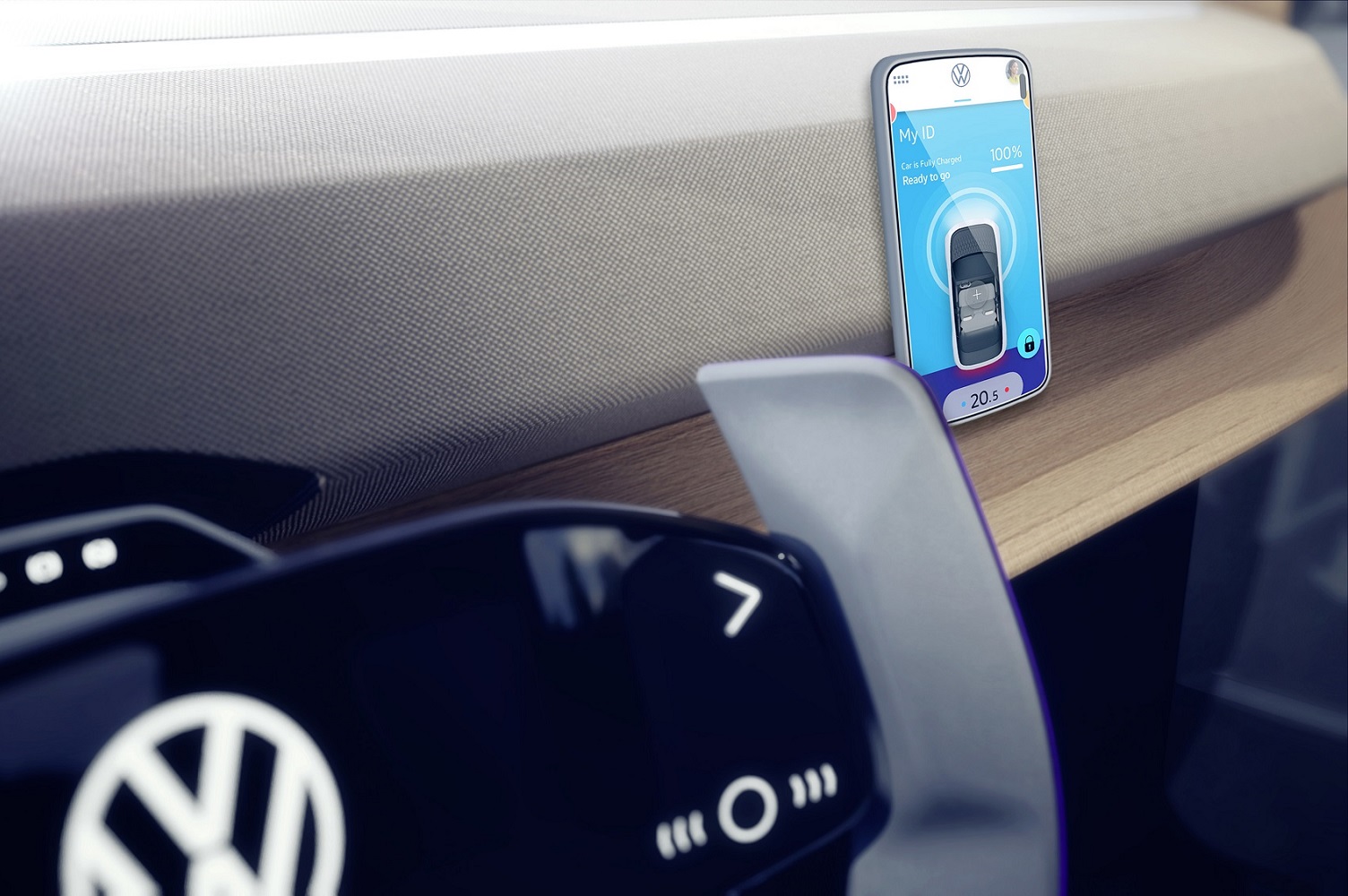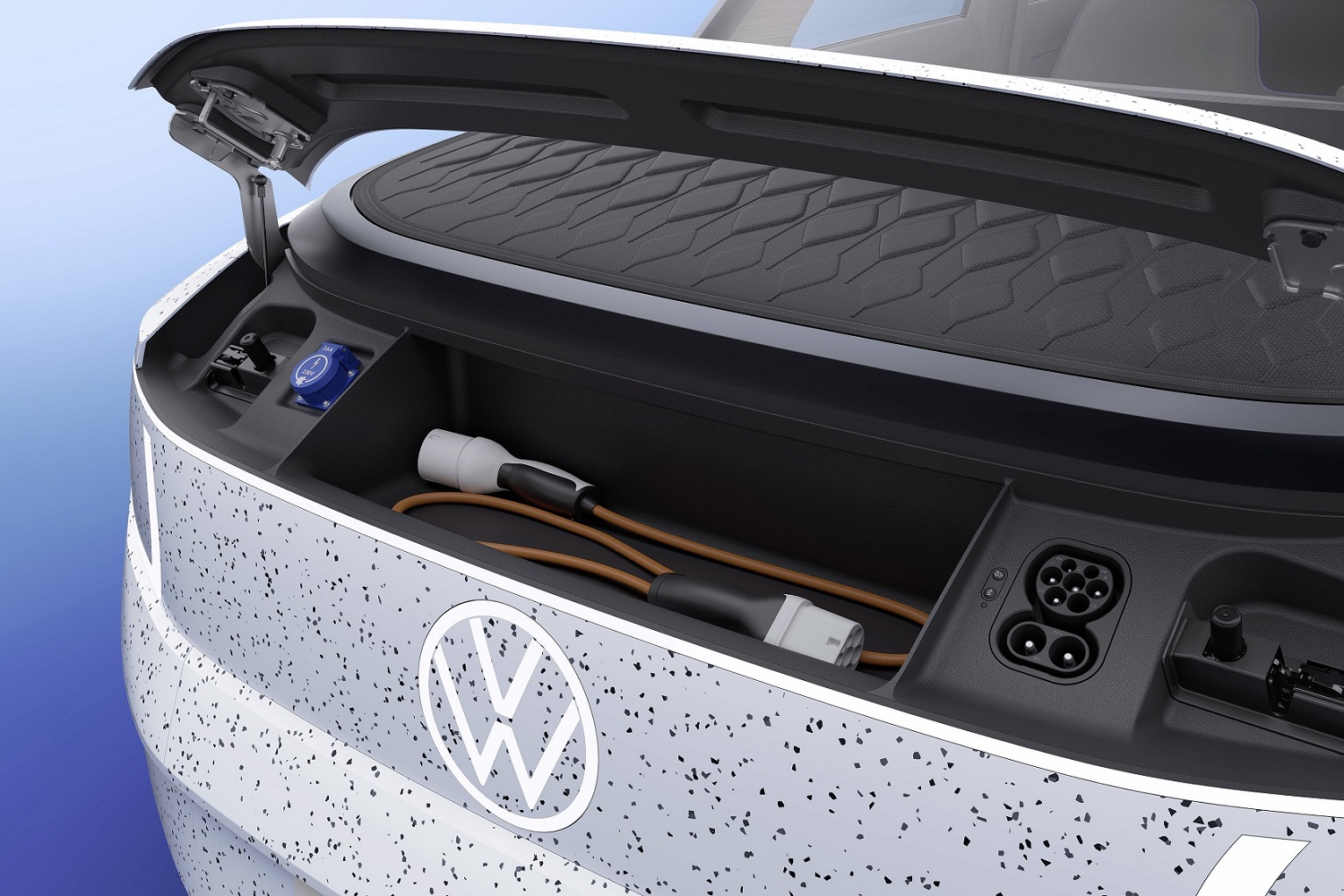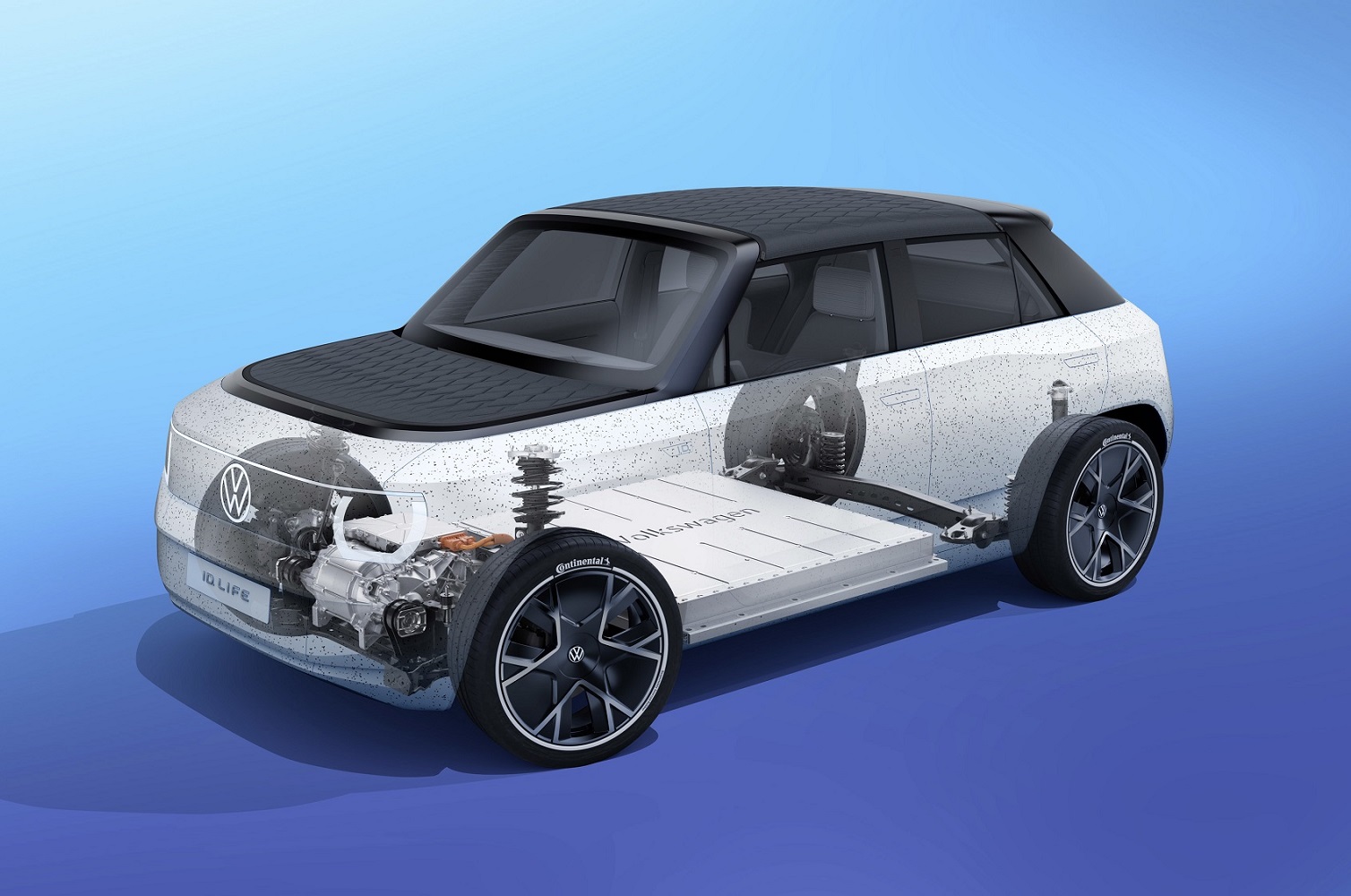One major issue continues to stand in the way of electric cars: Cost. They tend to be more expensive than comparable gasoline-powered vehicles. Volkswagen plans to make EVs relatively affordable in the not-too-distant future, and it unveiled a small, city-friendly concept called ID.Life at this week’s 2021 Munich auto show to illustrate what it has in store.
Volkswagen is thinking small: The ID.Life measures 161.6 inches from bumper to bumper, 72.6 inches wide, and 63 inches tall. Put another way, it’s a couple of inches longer and narrower than a Hyundai Venue. It’s characterized by a pure, simple exterior design and a silhouette that blurs the line between a hatchback and a crossover. Users can remove the roof panel — the design of which can be personalized — to transform the ID.Life into a quasi-convertible.
Developed for young buyers, the ID.Life offers a versatile, lounge-like interior in spite of its small dimensions; it’s a packaging solution made possible by the electric underpinnings. There’s a 34-inch screen integrated into the dashboard, but it doesn’t display the infotainment system. Instead, it pops up from the area beneath the windshield and it can be used to play video games or watch movies. If you need navigation directions, or if you want to change the music, there’s an app for that. Each user’s smartphone or tablet displays the infotainment system.
X-ray vision reveals a smaller version of the highly modular MEB architecture designed to underpin a long and growing list of EVs. Power comes from a single electric motor that zaps the front wheels into motion, which is a big change because all of the existing MEB-based cars are either rear- or all-wheel-drive. The motor draws electricity from a 62-kilowatt-hour lithium-ion battery pack to develop 234 horsepower and 214 pound-feet of torque, which is a lot for such a small car and enough for a zero-to-60-mph time of 6.9 seconds. Maximum driving range checks in at 249 miles on the Worldwide Harmonised Light Vehicle Test Procedure testing cycle used in Europe, which is more generous than the Environmental Protection Agency’s testing cycle.
Volkswagen stresses the ID.Life is a concept, so you can’t go out and buy one right now, but it also openly admits the car is a preview of a production model scheduled to make its debut in 2025. It’s too early to tell what it will be called; it might receive a number after the ID prefix to fall in line with the rest of the range, like the ID.3 and the ID.4. When it lands, it should carry a base price of about 20,000 euros, which represents around $24,000 at the current conversion rate. For context, Volkswagen’s smallest crossover is the the Taos, which costs $23,000. The Life won’t be sold in America due to its pocket-sized dimensions, but it illustrates how Volkswagen envisions the city car of the future.
